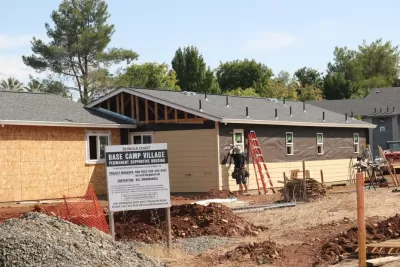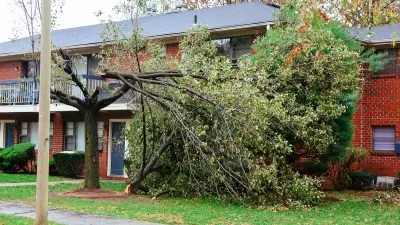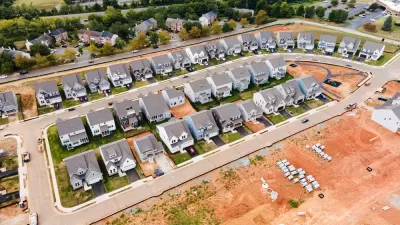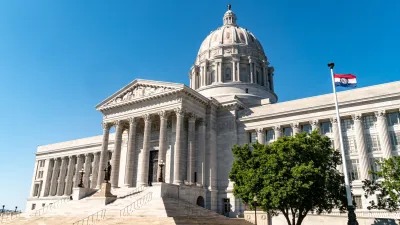Increases of up to 104 percent in insurance rates are squeezing nonprofit affordable housing developers as rates rise around the country.

Rising insurance costs are burdening affordable housing developers, who often pay 10 to 15 percent more than market-rate developers, according to a report by Nancy Marshall-Genzer for Marketplace.
One insurance co-op, the Housing Partnership Insurance Exchange, saw rate increases between 34 percent and 104 percent for next year. “Whether it’s flooding or fires on the West Coast, we believe that those are adding inflationary pressure to our premiums,” said Paul Bernard, vice chair of the Exchange. For the nonprofits that manage affordable housing, this often means shifting funds from resident programs.
As extreme weather events like wildfires and flooding make the market riskier in many parts of the country, insurers have raised rates and started leaving some states, such as California, altogether.
FULL STORY: Affordable housing hammered by rising insurance rates

Trump Administration Could Effectively End Housing Voucher Program
Federal officials are eyeing major cuts to the Section 8 program that helps millions of low-income households pay rent.

Planetizen Federal Action Tracker
A weekly monitor of how Trump’s orders and actions are impacting planners and planning in America.

Ken Jennings Launches Transit Web Series
The Jeopardy champ wants you to ride public transit.

California Invests Additional $5M in Electric School Buses
The state wants to electrify all of its school bus fleets by 2035.

Austin Launches $2M Homelessness Prevention Fund
A new grant program from the city’s Homeless Strategy Office will fund rental assistance and supportive services.

Alabama School Forestry Initiative Brings Trees to Schoolyards
Trees can improve physical and mental health for students and commnity members.
Urban Design for Planners 1: Software Tools
This six-course series explores essential urban design concepts using open source software and equips planners with the tools they need to participate fully in the urban design process.
Planning for Universal Design
Learn the tools for implementing Universal Design in planning regulations.
Ada County Highway District
Clanton & Associates, Inc.
Jessamine County Fiscal Court
Institute for Housing and Urban Development Studies (IHS)
City of Grandview
Harvard GSD Executive Education
Toledo-Lucas County Plan Commissions
Salt Lake City
NYU Wagner Graduate School of Public Service





























